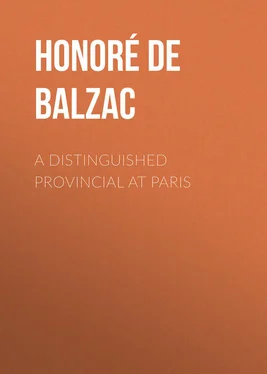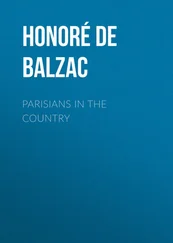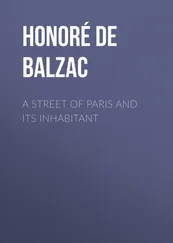Honoré Balzac - A Distinguished Provincial at Paris
Здесь есть возможность читать онлайн «Honoré Balzac - A Distinguished Provincial at Paris» — ознакомительный отрывок электронной книги совершенно бесплатно, а после прочтения отрывка купить полную версию. В некоторых случаях можно слушать аудио, скачать через торрент в формате fb2 и присутствует краткое содержание. Жанр: literature_19, foreign_antique, foreign_prose, на английском языке. Описание произведения, (предисловие) а так же отзывы посетителей доступны на портале библиотеки ЛибКат.
- Название:A Distinguished Provincial at Paris
- Автор:
- Жанр:
- Год:неизвестен
- ISBN:нет данных
- Рейтинг книги:4 / 5. Голосов: 1
-
Избранное:Добавить в избранное
- Отзывы:
-
Ваша оценка:
- 80
- 1
- 2
- 3
- 4
- 5
A Distinguished Provincial at Paris: краткое содержание, описание и аннотация
Предлагаем к чтению аннотацию, описание, краткое содержание или предисловие (зависит от того, что написал сам автор книги «A Distinguished Provincial at Paris»). Если вы не нашли необходимую информацию о книге — напишите в комментариях, мы постараемся отыскать её.
A Distinguished Provincial at Paris — читать онлайн ознакомительный отрывок
Ниже представлен текст книги, разбитый по страницам. Система сохранения места последней прочитанной страницы, позволяет с удобством читать онлайн бесплатно книгу «A Distinguished Provincial at Paris», без необходимости каждый раз заново искать на чём Вы остановились. Поставьте закладку, и сможете в любой момент перейти на страницу, на которой закончили чтение.
Интервал:
Закладка:
“LUCIEN.”
The name of Flicoteaux is engraved on many memories. Few indeed were the students who lived in the Latin Quarter during the last twelve years of the Restoration and did not frequent that temple sacred to hunger and impecuniosity. There a dinner of three courses, with a quarter bottle of wine or a bottle of beer, could be had for eighteen sous; or for twenty-two sous the quarter bottle becomes a bottle. Flicoteaux, that friend of youth, would beyond a doubt have amassed a colossal fortune but for a line on his bill of fare, a line which rival establishments are wont to print in capital letters, thus – BREAD AT DISCRETION, which, being interpreted, should read “indiscretion.”
Flicoteaux has been nursing-father to many an illustrious name. Verily, the heart of more than one great man ought to wax warm with innumerable recollections of inexpressible enjoyment at the sight of the small, square window panes that look upon the Place de la Sorbonne, and the Rue Neuve-de-Richelieu. Flicoteaux II. and Flicoteaux III. respected the old exterior, maintaining the dingy hue and general air of a respectable, old-established house, showing thereby the depth of their contempt for the charlatanism of the shop-front, the kind of advertisement which feasts the eyes at the expense of the stomach, to which your modern restaurant almost always has recourse. Here you beheld no piles of straw-stuffed game never destined to make the acquaintance of the spit, no fantastical fish to justify the mountebank’s remark, “I saw a fine carp to-day; I expect to buy it this day week.” Instead of the prime vegetables more fittingly described by the word primeval, artfully displayed in the window for the delectation of the military man and his fellow country-woman the nursemaid, honest Flicoteaux exhibited full salad-bowls adorned with many a rivet, or pyramids of stewed prunes to rejoice the sight of the customer, and assure him that the word “dessert,” with which other handbills made too free, was in this case no charter to hoodwink the public. Loaves of six pounds’ weight, cut in four quarters, made good the promise of “bread at discretion.” Such was the plenty of the establishment, that Moliere would have celebrated it if it had been in existence in his day, so comically appropriate is the name.
Flicoteaux still subsists; so long as students are minded to live, Flicoteaux will make a living. You feed there, neither more nor less; and you feed as you work, with morose or cheerful industry, according to the circumstances and the temperament.
At that time his well-known establishment consisted of two dining-halls, at right angles to each other; long, narrow, low-ceiled rooms, looking respectively on the Rue Neuve-de-Richelieu and the Place de la Sorbonne. The furniture must have come originally from the refectory of some abbey, for there was a monastic look about the lengthy tables, where the serviettes of regular customers, each thrust through a numbered ring of crystallized tin plate, were laid by their places. Flicoteaux I. only changed the serviettes of a Sunday; but Flicoteaux II. changed them twice a week, it is said, under pressure of competition which threatened his dynasty.
Flicoteaux’s restaurant is no banqueting-hall, with its refinements and luxuries; it is a workshop where suitable tools are provided, and everybody gets up and goes as soon as he has finished. The coming and going within are swift. There is no dawdling among the waiters; they are all busy; every one of them is wanted.
The fare is not very varied. The potato is a permanent institution; there might not be a single tuber left in Ireland, and prevailing dearth elsewhere, but you would still find potatoes at Flicoteaux’s. Not once in thirty years shall you miss its pale gold (the color beloved of Titian), sprinkled with chopped verdure; the potato enjoys a privilege that women might envy; such as you see it in 1814, so shall you find it in 1840. Mutton cutlets and fillet of beef at Flicoteaux’s represent black game and fillet of sturgeon at Very’s; they are not on the regular bill of fare, that is, and must be ordered beforehand. Beef of the feminine gender there prevails; the young of the bovine species appears in all kinds of ingenious disguises. When the whiting and mackerel abound on our shores, they are likewise seen in large numbers at Flicoteaux’s; his whole establishment, indeed, is directly affected by the caprices of the season and the vicissitudes of French agriculture. By eating your dinners at Flicoteaux’s you learn a host of things of which the wealthy, the idle, and folk indifferent to the phases of Nature have no suspicion, and the student penned up in the Latin Quarter is kept accurately informed of the state of the weather and good or bad seasons. He knows when it is a good year for peas or French beans, and the kind of salad stuff that is plentiful; when the Great Market is glutted with cabbages, he is at once aware of the fact, and the failure of the beetroot crop is brought home to his mind. A slander, old in circulation in Lucien’s time, connected the appearance of beef-steaks with a mortality among horseflesh.
Few Parisian restaurants are so well worth seeing. Every one at Flicoteaux’s is young; you see nothing but youth; and although earnest faces and grave, gloomy, anxious faces are not lacking, you see hope and confidence and poverty gaily endured. Dress, as a rule, is careless, and regular comers in decent clothes are marked exceptions. Everybody knows at once that something extraordinary is afoot: a mistress to visit, a theatre party, or some excursion into higher spheres. Here, it is said, friendships have been made among students who became famous men in after days, as will be seen in the course of this narrative; but with the exception of a few knots of young fellows from the same part of France who make a group about the end of a table, the gravity of the diners is hardly relaxed. Perhaps this gravity is due to the catholicity of the wine, which checks good fellowship of any kind.
Flicoteaux’s frequenters may recollect certain sombre and mysterious figures enveloped in the gloom of the chilliest penury; these beings would dine there daily for a couple of years and then vanish, and the most inquisitive regular comer could throw no light on the disappearance of such goblins of Paris. Friendships struck up over Flicoteaux’s dinners were sealed in neighboring cafes in the flames of heady punch, or by the generous warmth of a small cup of black coffee glorified by a dash of something hotter and stronger.
Lucien, like all neophytes, was modest and regular in his habits in those early days at the Hotel de Cluny. After the first unlucky venture in fashionable life which absorbed his capital, he threw himself into his work with the first earnest enthusiasm, which is frittered away so soon over the difficulties or in the by-paths of every life in Paris. The most luxurious and the very poorest lives are equally beset with temptations which nothing but the fierce energy of genius or the morose persistence of ambition can overcome.
Lucien used to drop in at Flicoteaux’s about half-past four, having remarked the advantages of an early arrival; the bill-of-fare was more varied, and there was still some chance of obtaining the dish of your choice. Like all imaginative persons, he had taken a fancy to a particular seat, and showed discrimination in his selection. On the very first day he had noticed a table near the counter, and from the faces of those who sat about it, and chance snatches of their talk, he recognized brothers of the craft. A sort of instinct, moreover, pointed out the table near the counter as a spot whence he could parlay with the owners of the restaurant. In time an acquaintance would grow up, he thought, and then in the day of distress he could no doubt obtain the necessary credit. So he took his place at a small square table close to the desk, intended probably for casual comers, for the two clean serviettes were unadorned with rings. Lucien’s opposite neighbor was a thin, pallid youth, to all appearance as poor as himself; his handsome face was somewhat worn, already it told of hopes that had vanished, leaving lines upon his forehead and barren furrows in his soul, where seeds had been sown that had come to nothing. Lucien felt drawn to the stranger by these tokens; his sympathies went out to him with irresistible fervor.
Читать дальшеИнтервал:
Закладка:
Похожие книги на «A Distinguished Provincial at Paris»
Представляем Вашему вниманию похожие книги на «A Distinguished Provincial at Paris» списком для выбора. Мы отобрали схожую по названию и смыслу литературу в надежде предоставить читателям больше вариантов отыскать новые, интересные, ещё непрочитанные произведения.
Обсуждение, отзывы о книге «A Distinguished Provincial at Paris» и просто собственные мнения читателей. Оставьте ваши комментарии, напишите, что Вы думаете о произведении, его смысле или главных героях. Укажите что конкретно понравилось, а что нет, и почему Вы так считаете.












